Even though it’s been a bit better this year, sargassum has been plaguing Cancun and much of the rest of the Mexican Caribbean for decades.
Although unsightly, it’s generally been thought to pose no real threat to humans, but a new report shows that sargassum is more toxic than ever.
Here are a few tips on how to avoid it on your Cancun vacation, but first, let’s examine sargassum, where it comes from, and what’s being done to fight it.
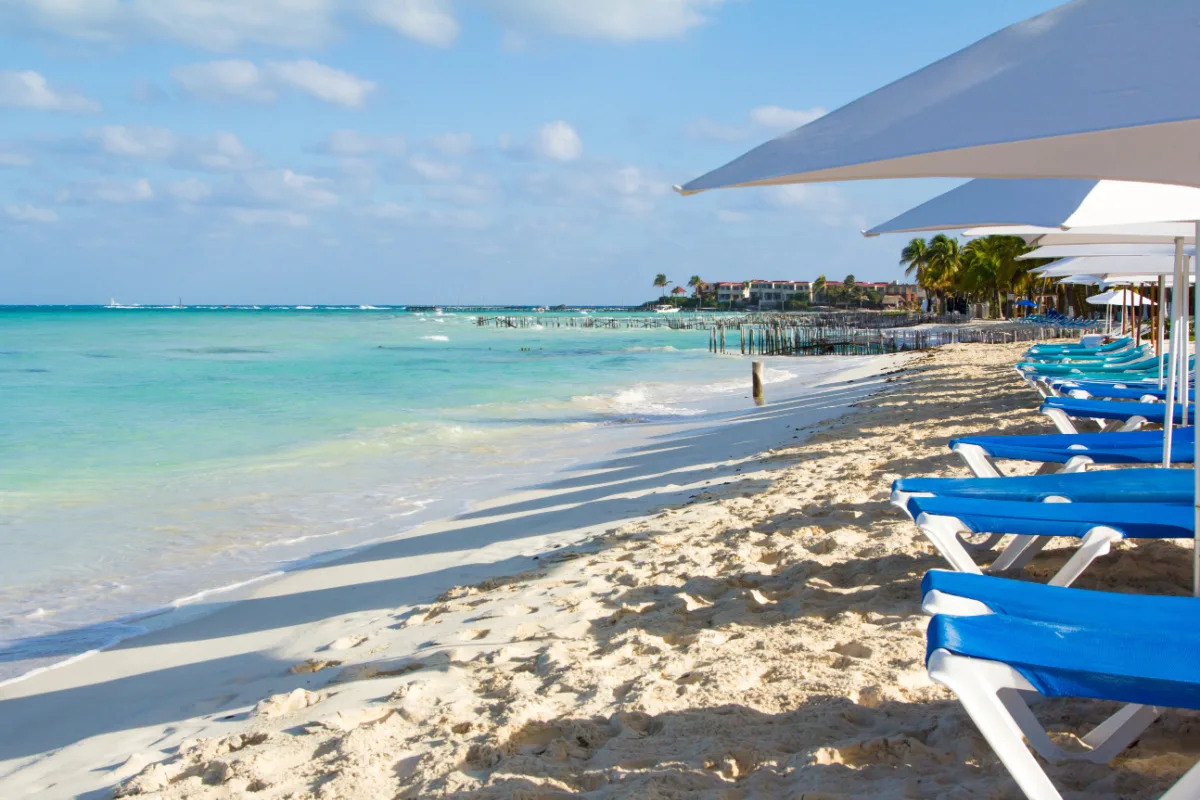
What Is Sargassum?
Sargassum is a type of macroalgae within the seaweed family that’s a constant presence in Cancun.
Sargassum floats on top of the water rather than in the water.
It’s brown in color and emits a pungent odor as it decays after washing up on the shores in Cancun and the rest of the Mexican Caribbean.
As mentioned above, it’s generally thought to be pretty harmless.
Still, now the Sargasso Monitoring Network is reporting that sargassum is more toxic due to the presence of heavy metals like arsenic, ammonia, microplastics, hydrogen sulfide, and other dangerous chemicals and compounds.
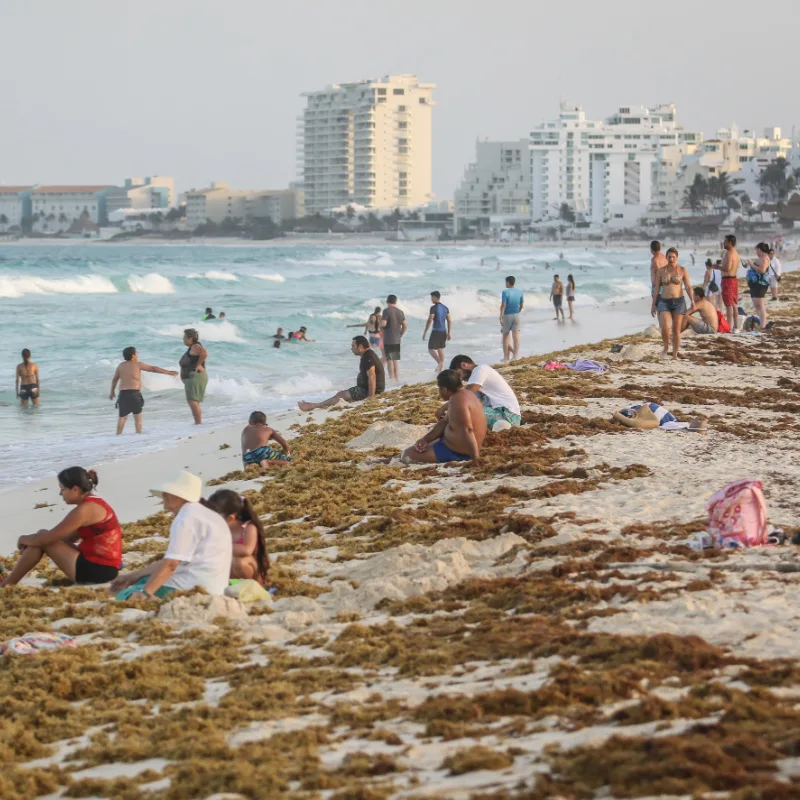
Where Does Sargassum Come From?
Sargassum comes from the Atlantic Ocean, which is why it’s not uncommon to see it on beaches on the east coast of the United States too.
In the Atlantic, it forms what is known as the Sargasso Sea.
From there, some of it travels along ocean currents until it reaches the Mexican Caribbean, sometimes in large amounts.
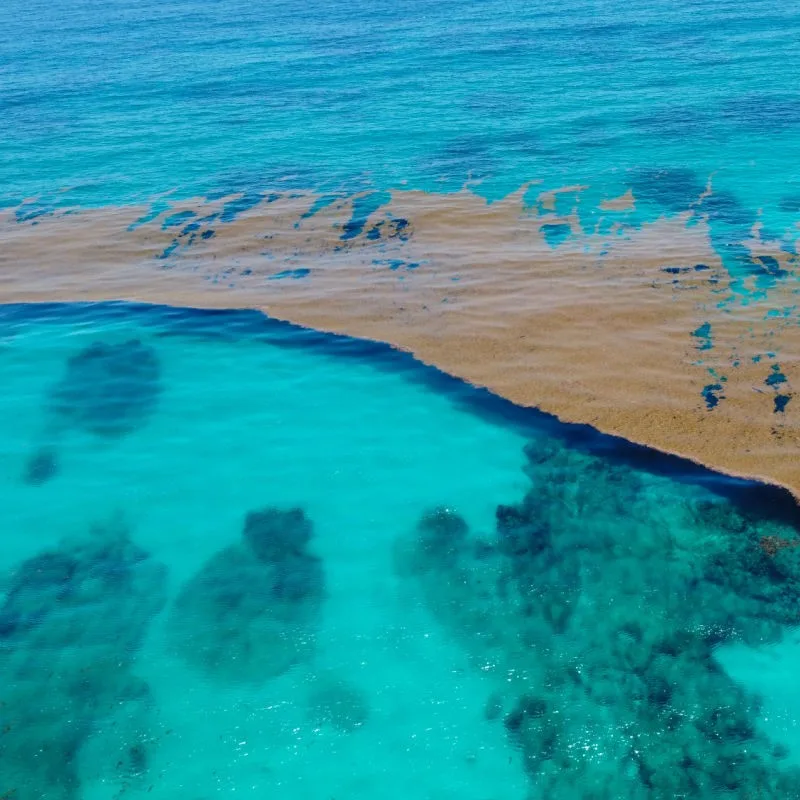
What Cancun Is Doing To Keep Sargassum Off Its Beaches
Cancun and other Mexican Caribbean destinations use a variety of methods to minimize the impact sargassum has on tourism.
One of them is using naval ships to collect sargassum while it’s still out to sea, preventing it from reaching the coast.
Another is putting up sargassum barriers in the water to help block it from washing onto the shore.
In the absence of these methods, or if these methods don’t work, it’s then left up to local officials to have it removed from the beaches.
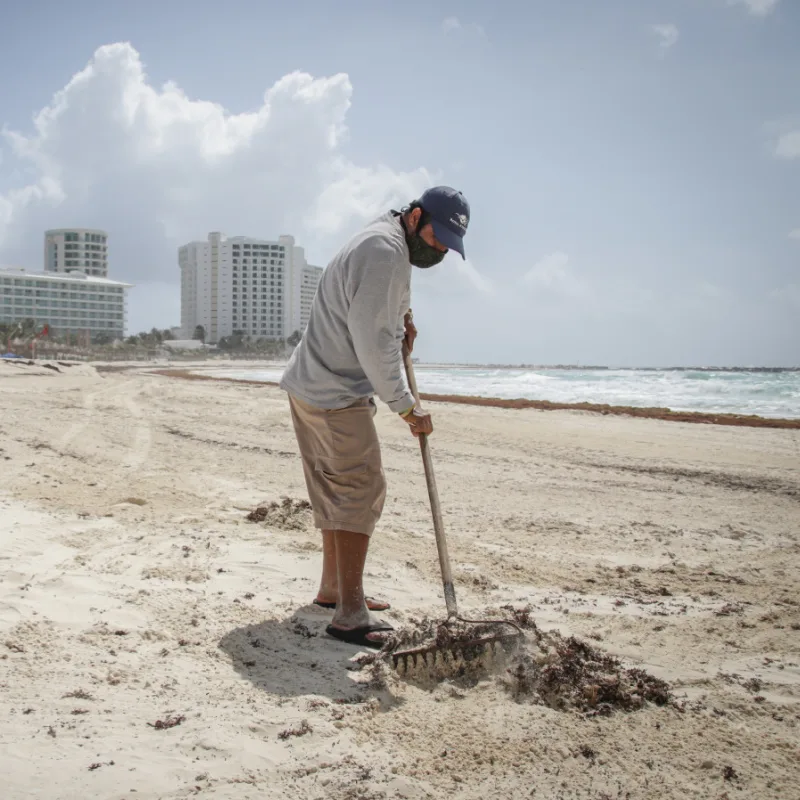
Visit During The Right Season
One way to avoid sargassum in Cancun is to visit during the right season.
Sargassum season in the Mexican Caribbean runs from around April or May until about August, so outside of these months is the best time to visit.
It can arrive as early as February, though, and keep arriving as late as October, but the worst part of the season is generally the hottest part of summer, July and August.
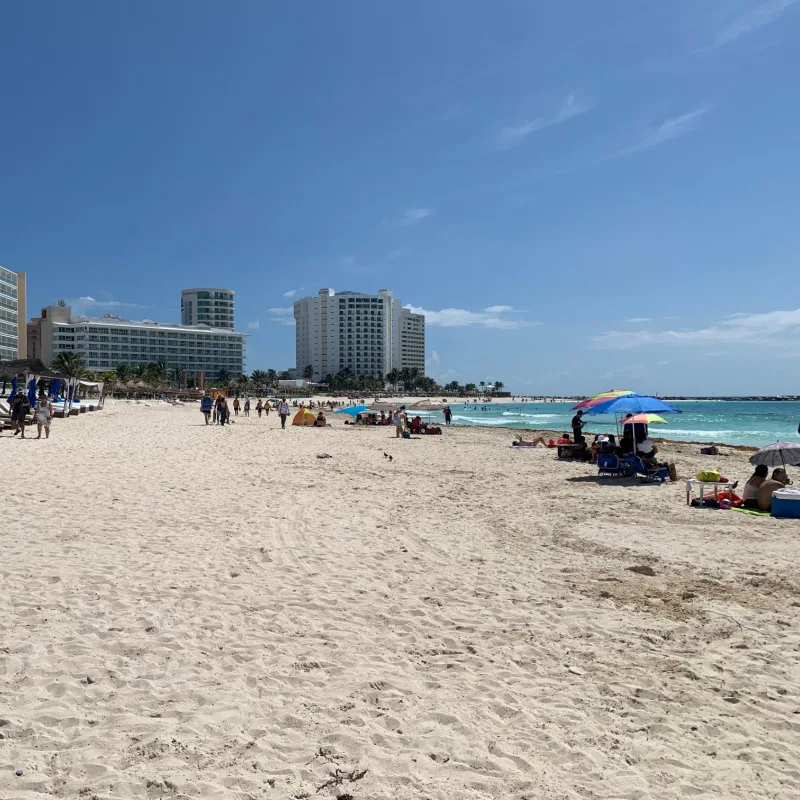
Choose Your Mexican Caribbean Vacation Destination Wisely
If you’re not dead set on Cancun, you may be able to avoid sargassum by simply choosing a different Mexican Caribbean destination for your vacation.
There are a few that get less sargassum overall or have certain beaches that don’t get as much of it due to where along the coast they’re situated.
Areas in the Mexican Caribbean with less sargassum include:
- Isla Mujeres – Directly Across From Cancun
- Isla Contoy – North Of Isla Mujeres
- Cozumel – South Of Cancun, Across From Playa Del Carmen
- Bacalar – South Of Tulum
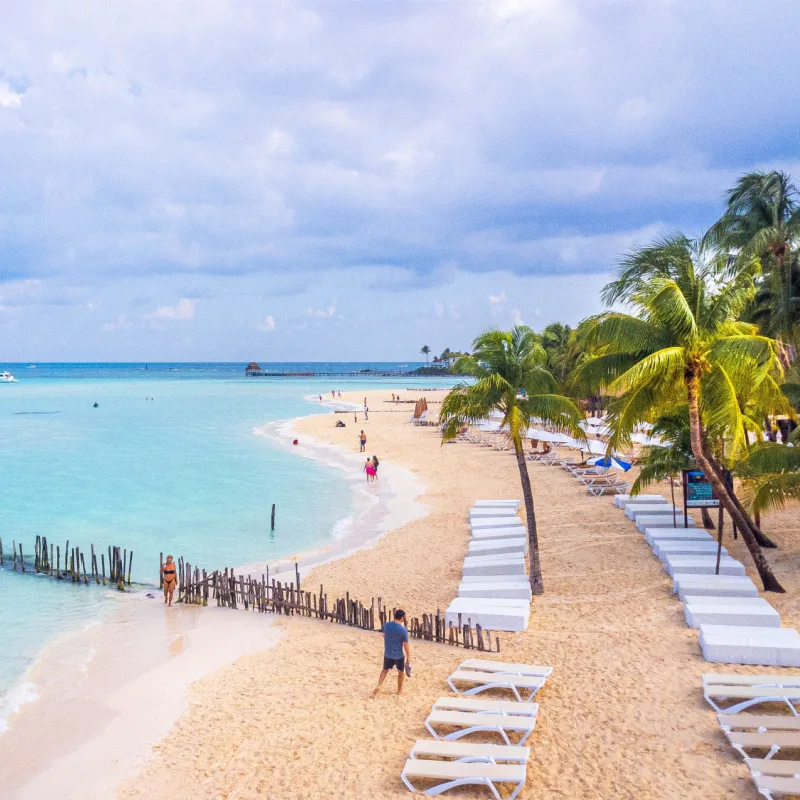
Pick A Resort With An Amazing Pool
Cancun is known for its sprawling resorts with multiple stunning pools, most of which are beachfront.
If you pick one of these resorts for your vacation, you can still enjoy the views while cooling off without having to trudge through Sargassum.
Hotels along the famous Hotel Zone typically have the best pools and the best views.
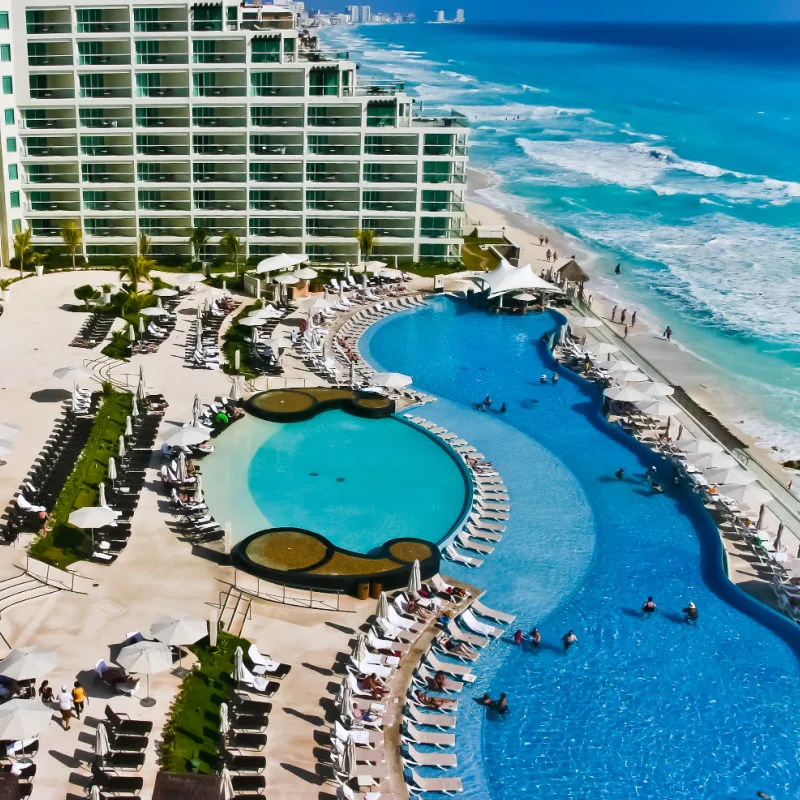
Follow The Sargassum Monitoring Network
If you can plan your vacation on somewhat short notice, you can also follow the Sargassum Monitoring Network by following this link.
This is the best resource for monitoring sargassum in the destination.
It will give you real-time, up-to-date information on how much sargassum is on Cancun’s beaches.
Plan Your Next Cancun Vacation:
Traveler Alert: Don’t Forget Travel Insurance For Your Next Trip!
Choose From Thousands of Cancun and Riviera Maya Hotels, Resorts and Hostels with Free Cancellation On Most Properties
↓ Join the community ↓
The Cancun Sun Community FB group has all the latest travel news, conversations and tourism Q&A’s for the Mexican Caribbean

Subscribe to our Latest Posts
Enter your email address to subscribe to The Cancun Sun’s latest breaking news affecting travelers, straight to your inbox.
